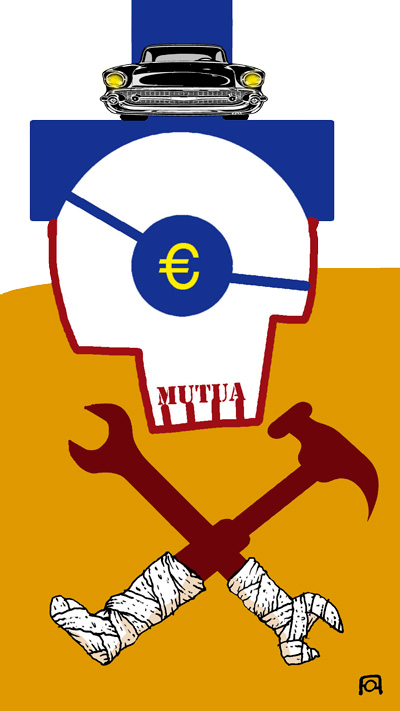

Or at least the newspapers and television companies told us this: “Labor absenteeism has increased in the State and has been proclaimed champion of the Basque Country and Navarre.”
First of all, it has to be said that the report that gave way to the news was produced by Adecco. One of the most important companies in ETT (Temporary Employment Companies). Let us be clear about the conceptual framework.
We are led by “absenteeism” and “escaped” us, or at least try to give that image. Otherwise, the news would be very different and would focus on the degree of illness of workers. Because behind the word absenteeism there are only sick leave. Sick leave, maternity leave and conciliation problems, as measured by Adecco. Unjustified cases, as they themselves say, “have no impact.” In other words, for employers, it is a problem when workers get sick, we bring children or we have to take care of a relative, because we “lose” them the money. They forget to say that not only companies for those “losses”, but also workers are quoted each month.
This report is presented in the context of a comprehensive campaign: to take occupational health out of the public system and put it into the hands of private companies, that is, mutual companies, even when we have to take the sick leave for common contingencies. The aim of mutual societies is not to care for health, such as Osakidetza or Osasunbidea, but to guarantee the profits of companies. And for that, they send us to work anyway, even with their heads under their arms. Distrust the white coats of all of them, more than the hypocritical conduct of the majority, which is pure hypocrisy.
It could also be news that in the CAV and Navarre workers are less afraid to leave or leave. And this is not understood without taking into account the union map of Euskal Herria and the awareness of the struggle of the workers. That is why the data is higher in large companies and in trade unions. This also comes in the report (although the trade union variable is not mentioned). Absenteeism has not increased, it has regained the pre-crisis level, that is, the fear of losing jobs has been reduced. Here's another possible headline.
Companies must be profitable. Otherwise, the seven plagues of the will fall on us, as should the increase in the interprofessional minimum wage. But how do you measure profitability? Depending on the profits of the companies. Nothing else. In other words, depending on the salaries that employers, boards of directors and shareholders obtain at the end of the year. But these benefits barely move the real economy. The real economy – the consumable capitalist model – is largely driven by the consumption of citizenship. However, the concept of economic profitability never includes citizens’ wages. And if that's not taken into account, much less social profitability, because it doesn't seem profitable that work gets sick and dies or that, being sick, we are forced to go to work.
One final point: we think we are lazy, but the level of productivity of Hego Euskal Herria, based on Eurostat data, is one of the highest in Europe, above that of Spain, France or Germany. In the Basque Country as a whole, the data from Gaindegia are also well above the European average. But of this Adecco is not going to make a report, nor is the employer going to give any news.